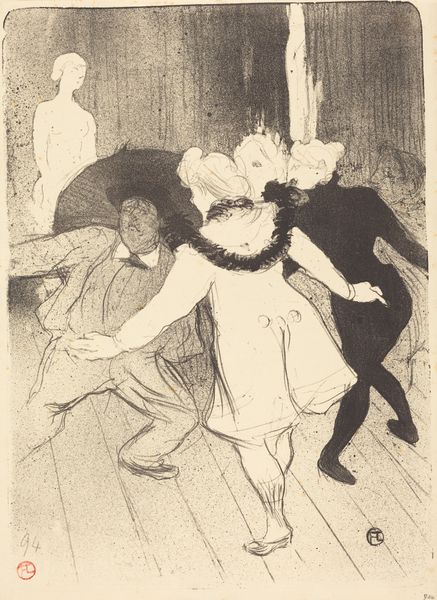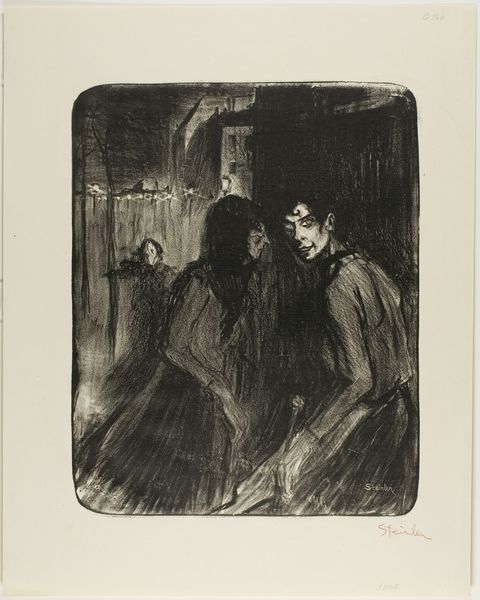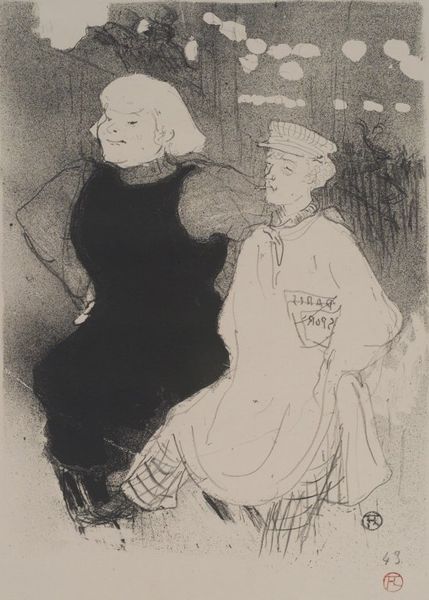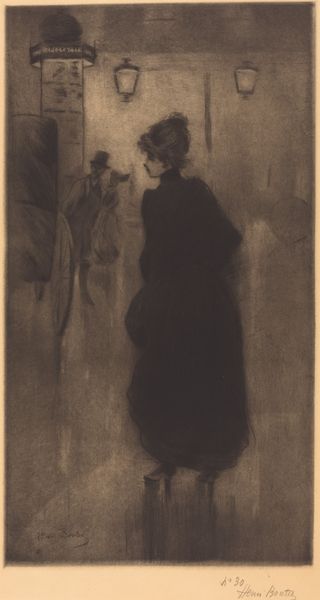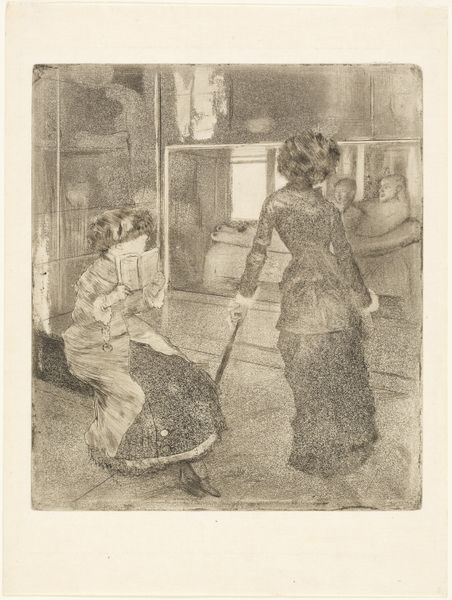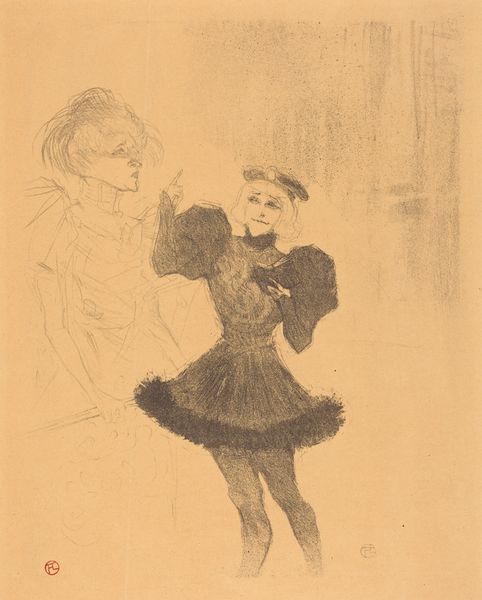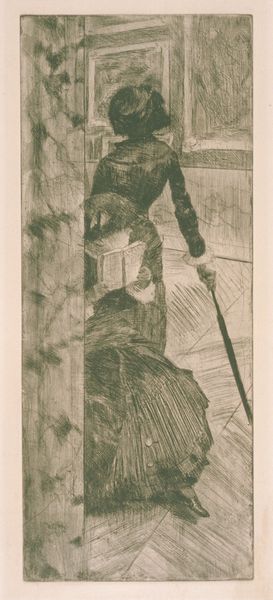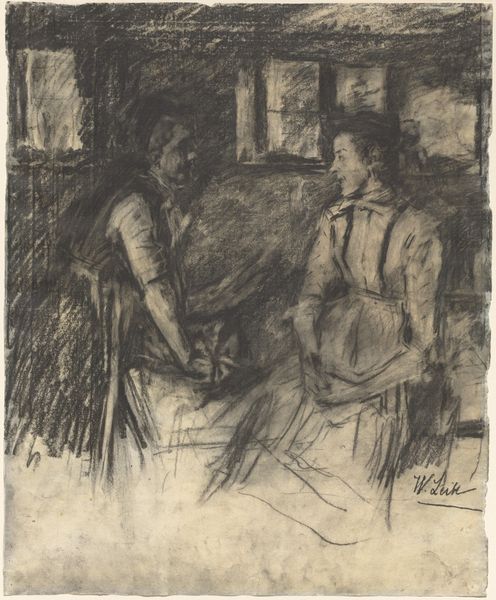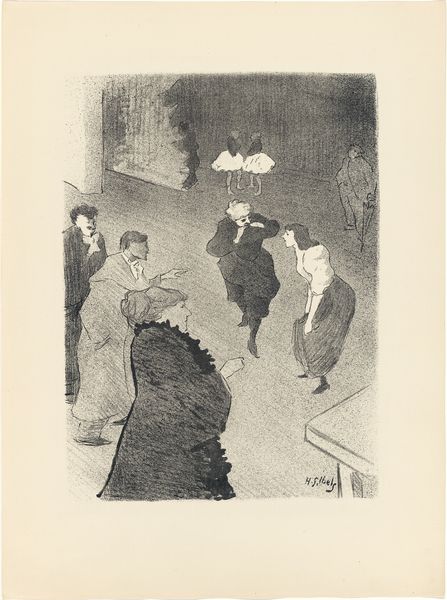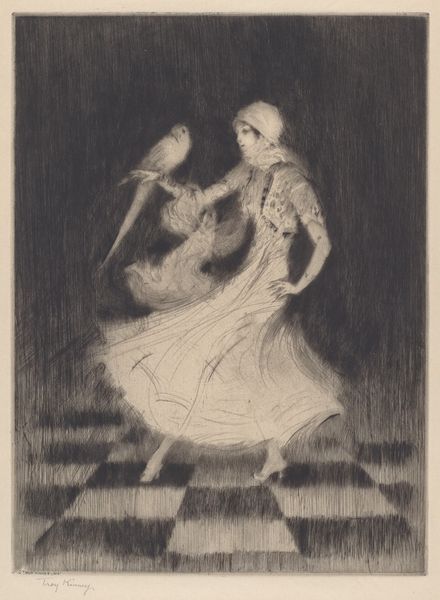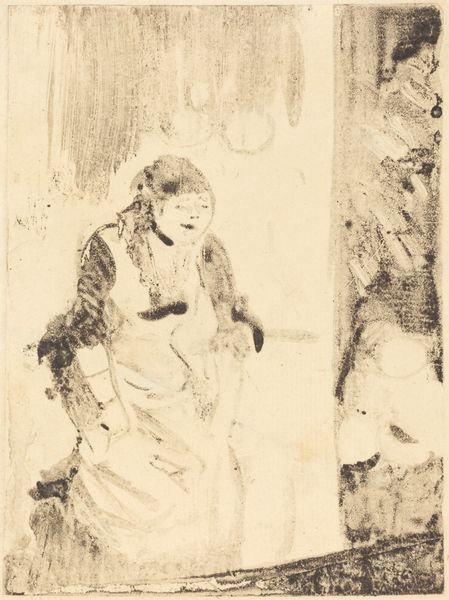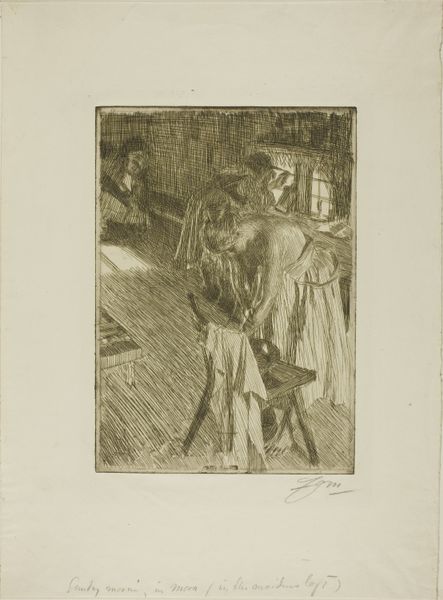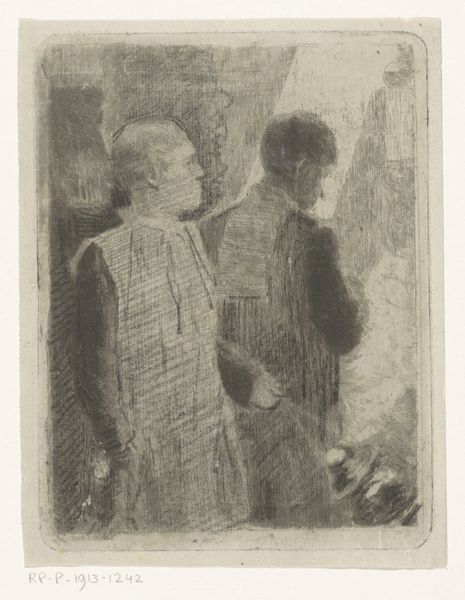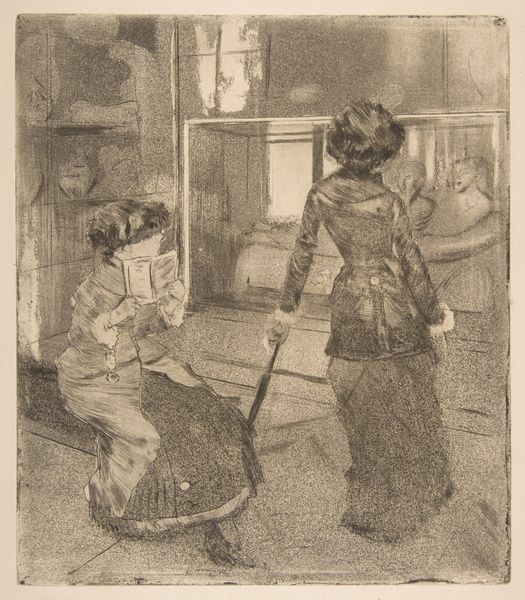
Dress Rehearsal at the Folies-Bergere (Répétition générale aux Folies-Bergère) 1893
0:00
0:00
Copyright: National Gallery of Art: CC0 1.0
Editor: So, this is Henri de Toulouse-Lautrec’s lithograph, "Dress Rehearsal at the Folies-Bergere," from 1893. The swirling strokes and monochrome palette create this incredibly intimate feeling, like we're peeking behind the curtain. What do you see in this piece, beyond the surface? Curator: Beyond the immediate impression of backstage life, I see a critique of the gaze, particularly male gaze, which often objectified women in performance during the late 19th century. Look at how Lautrec positions us, not as audience members enjoying a spectacle, but as voyeurs intruding upon a private moment. Consider how that might intersect with questions of class and power. Editor: That's fascinating. The almost blurry quality made me think more about movement and a snapshot in time, but you're right, there's something uneasy about their expressions and how we're positioned relative to them. Are you saying he’s deliberately subverting typical portrayals of women at the Folies-Bergere? Curator: Absolutely. Instead of glamour, we witness a candid moment. These women are at work, their bodies and performances commodified for the entertainment of others. Lautrec doesn't shy away from depicting the socio-economic realities of their lives. Notice the visible brushstrokes, almost like revealing the constructed nature of the image itself, breaking the illusion. Does it remind you of other critical depictions of women in entertainment from the same era? Editor: That’s such a good point; it does call to mind Degas's dancers, but with, like, more awareness of their actual lives, maybe? I always just assumed Impressionism was about capturing beauty. Curator: It’s tempting to see Impressionism that way, but remember, many artists used it as a lens to critique social structures. Lautrec, in particular, had a unique perspective, shaped by his own experiences as an outsider due to his physical disabilities. Editor: This really shifts my perspective on the piece, and on Impressionism generally. Thank you! Curator: My pleasure! It’s in challenging those initial assumptions that we really start to see.
Comments
Join the conversation
Join millions of artists and users on Artera today and experience the ultimate creative platform.
